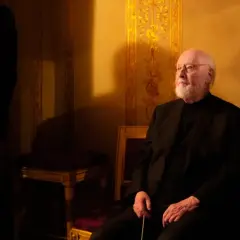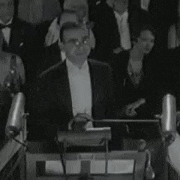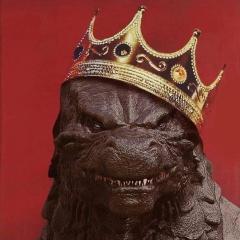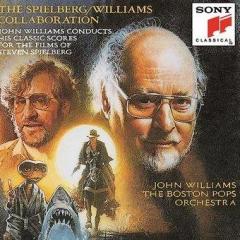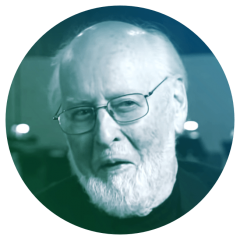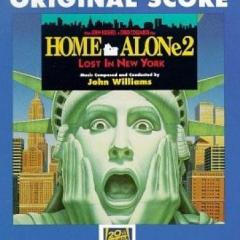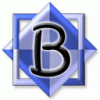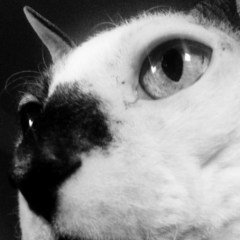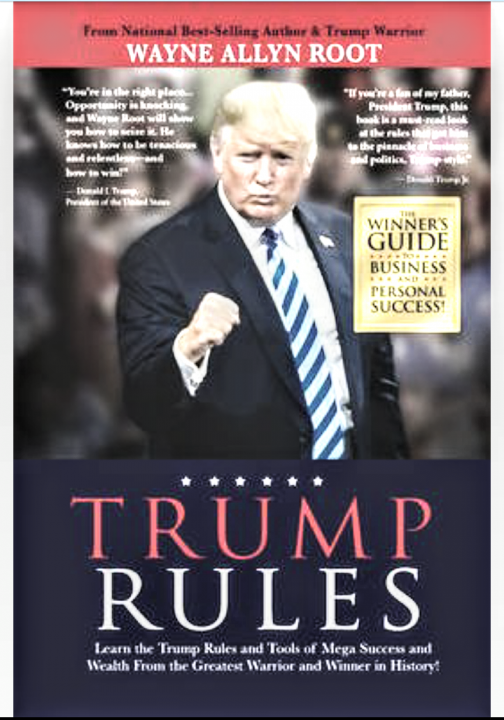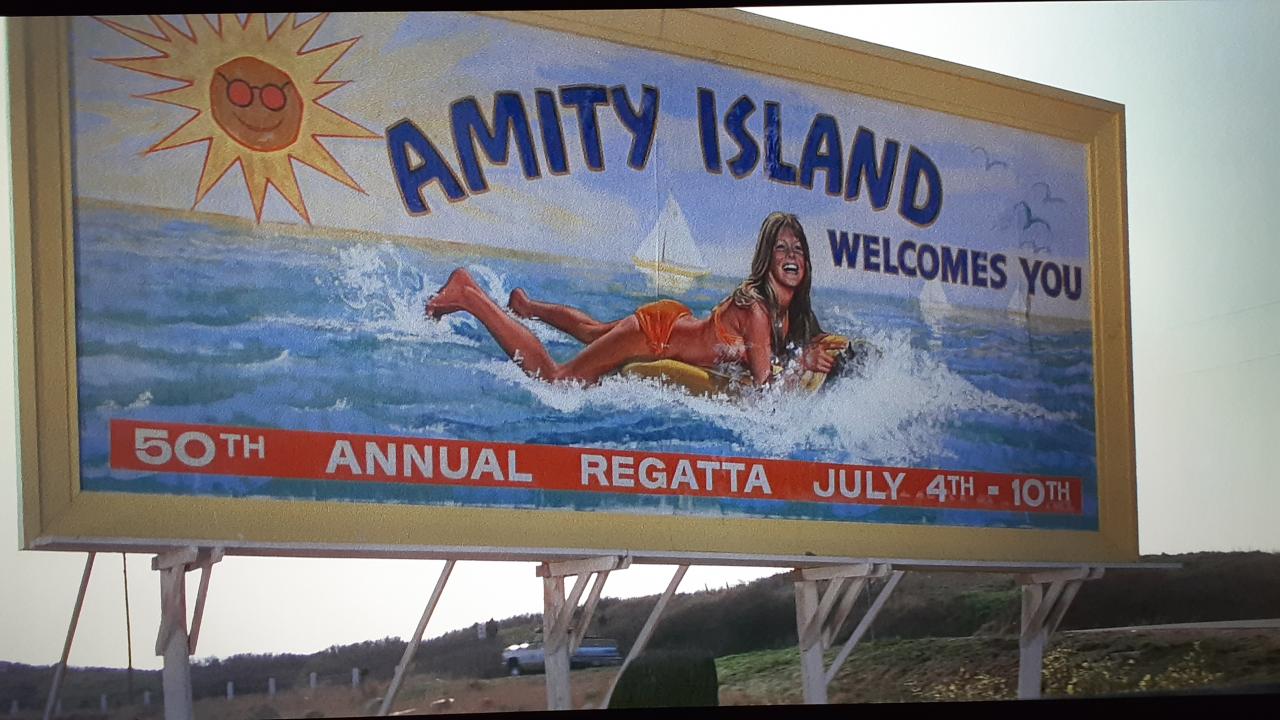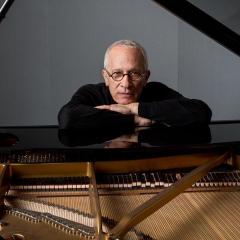Leaderboard
Popular Content
Showing content with the highest reputation on 19/01/21 in all areas
-
The United State Marine Band (aka The President's Own) will perform selections of music by American composers, including John Williams, during the prelude of the Inauguration ceremony of President Joe Biden and Vice President Kamala Harris tomorrow, January 20, at the US Capitol. https://www.marineband.marines.mil/Portals/175/Docs/Presidential Inauguration 2021/2021 Inaugural Prelude Program.pdf9 points
-
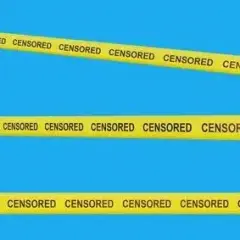
Why John Williams?
SingeMoisi and 8 others reacted to Jurassic Shark for a topic
OK, here's a more serious answer: - His melodic gifts. - His ability and persistency to (almost) always have something interesting going on in his music, be it counterpoint, rhythmic patterns, harmonic changes and so on. - His ability to turn even mediocre ideas into good pieces through solid workmanship. -His sense of quality: at the point where some composers would have said that a piece is done, JW keeps working on it until he's got something both he and we find interesting.9 points -

Star Wars Disenchantment
Docteur Qui and 6 others reacted to The Illustrious Jerry for a topic
7 points -
No, I mean that his music grabs you when you first hear it, and also rewards you with repeat listens as it contains layers and layers of brilliance. It is a like a really, really attractive person who you then find has a truly engaging personality.5 points
-
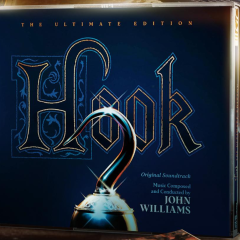
Star Wars Disenchantment
Docteur Qui and 2 others reacted to Jay for a topic
Isn't it amazing how much power and attention these guys are giving this guy?3 points -
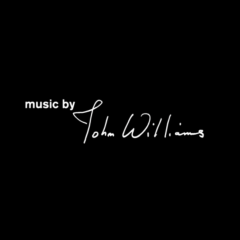
Why John Williams?
GerateWohl and 2 others reacted to Bayesian for a topic
I think we shouldn't overlook the good fortune JW has had to work with two directors (GL and SS) who were both great storytellers and willing to give JW enormous canvases (dozens of hours' worth) to work his magic on. For the most part, they both did the best thing you can do with that kind of genius -- which is to give him good material to work from and then just stay out of his way. But apart from that, JW is my favorite composer (after Beethoven) because he is a master of all aspects of his art (melody, harmony, orchestration, voicing, arranging...). He's proven he can write convincingly in multiple, completely disparate styles of music. He has a musicologist's understanding of the evolution of composition and performance over time. He is incredibly good at writing earworms and he's just as good at bombast as he is at contemplative or elegiac material. Moreover, he's mastered two rather distinct forms of music-making in his work in jazz and film scoring and can expertly blend the former into the latter. And beyond that... JW is an excellent pianist who proved himself as such well before he got into scoring, and he's a terrific conductor who orchestras love to perform for. And beyond even that, he's an accomplished composer for the concert hall whose works in that vein are considerably different and more challenging than his accessible material for film (which simply just shows again his incredible range). Finally, he is a true inspiration to me in that he's the archetype of what a lifetime of hard work can bring you. JW's story would be less accessible or inspirational to me if he was some kind of Mozartean freak who came out of the womb writing music, or the equivalent of a twenty-something tech wunderkind who made his first billion from a piece of code that happened to catch fire at the right moment. Rather, he put in his time, worked exceptionally hard and consistently, took advantage of every opportunity to improve his craftsmanship, and never allowed himself to coast. JW is like the embodiment of the Protestant work ethic and his legacy and recognition are wonderful reminders of what hard work can get you, at any stage in your life.3 points -
Williams is a heavyweight, both in the 20th century and overall. I once thought that Shostakovich was a better composer than him, but further studies of the music of both have made me reject this hypothesis. Shostakovich had a smiliar rare skill for melodically improving inspirations he followed, but overall was much more crude in his craft, with rare exceptions to be found in quartets and the preludes and fugues. As it stands, I only consider Stravinsky's and Debussy's contributions to the 20th century classical music greater, as their time resulted in what was perhaps the last great revolution. But I don't believe in a single mythical innovation card trumping all other considerations. Mendelssohn wasn't much of a revolutionary either. Williams' music is a spring of study material in every aspect of a composer's craft. There are many combinations of melodic, harmonic, contrapunctual, and orchestrational merits in his music that are not found easily in the ouvres of others. He is a great syncretist of styles and skills, setting the bar very high for anyone who wishes to continue a trend of such music. I like some Zimmer too - his collaborations with Powell, the Pirates films, the Lion King, all of which would be weak as classical, but are good as pop.3 points
-
3 points
-
Yesterday I randomly realized that we're now in a world where as much of JW's 2001-2005 feature film output has been expanded than hasn't been! Expanded: A.I. Artificial Intelligence Harry Potter and the Sorcerer's Stone Minority Report Harry Potter and the Chamber of Secrets Harry Potter and the Prisoner of Azkaban War of the Worlds Not Expanded: Attack of the Clones Catch Me If You Can The Terminal Revenge of the Sith Memoirs of a Geisha Munich When you factor in that Memoirs and Munich aren't possible until the union fees change, we're 6/10ths of the way through what can be! Here's hoping Disney Records makes AOTC and ROTS happen, and a specialty label is interested in CMIYC and The Terminal! Growing up waiting decades for my favorite 70s-90s scores to get expanded, it's great that so much he did in the early 2000s is already expanded! Which of these expansions have you enjoyed the most, and which are you looking forward to being next up?2 points
-

Star Wars Disenchantment
mstrox and one other reacted to Manakin Skywalker for a topic
I've got nothing going on this week.2 points -

The Poll to end all Star Wars Finale/End Credits Polls
oierem and one other reacted to Datameister for a topic
None of them do what ESB does better than ESB does it. It's a grandly bittersweet finale, followed by a brisk and exciting summation of all of the score's new major themes, all with minimal redundancy of material in the album setting. It's a powerhouse and I love it. But if you're looking for the fairytale-in-space feel, you can't beat ANH. It just feels like the perfect conclusion of what could have easily been a fun standalone space fantasy film. It's not super long, and the credits completely omit two of the score's most important themes, but boy, is it charming.2 points -

What Is The Last Score You Listened To? (older scores)
Tom Guernsey and one other reacted to Jay for a topic
James Horner - The Legend of Zorro Possibly my first time listening to this score, not sure; I've had the score to the first film since it came out and always liked it, but never saw this sequel movie and never picked up this OST album until I found it used in a Newbury Comics or Amoeba Records or something a few years back. Well, it's good! Very similar to the first score, honestly if I had both albums combined on shuffle I'd have no clue which film any random track was from. I like the sound he uses for these 2 scores, and I welcome expansions of both! Michael Giacchino - The Family Stone We watched this movie over the holiday season, my first time seeing it since it came out. I honestly can't say I noticed the score that often during the film, but the OST album listen this morning was nice. This is a fun album to play around the holidays every year! James Newton Howard - Dinosaur I think this is my first time listening to this OST album. I was rudely shocked when track #2 ended up being an absolutely terrible pop song, really soured my mood! But after that was finally over, the score that follows is pretty damn good! There's some really cool action music here, and lots of nice string and brass work in the more emotional parts. And the main theme is good too, it has a nice amount of optimism to it! I can't believe it took me so long to check this one out!2 points -
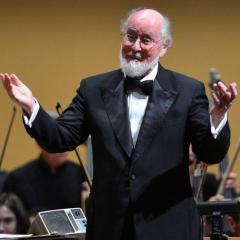
The Poll to end all Star Wars Finale/End Credits Polls
Smeltington and one other reacted to Falstaft for a topic
ESB for me, followed by ANH, and not a particularly hard decision. Pinnacles of the form, both of them. Worst, hands down, is ROTS -- a disjointed and frustrating send-off, if a well-performed one. The transition b/t Battle of the Heroes and the Throne Room is one of my least favorite moments in all of JW. The Prequels are all a mixed bag, to be honest. AOTC at least offers that wonderful ending, with the harp/harpsichord statement of ATS, a hint of Anakin's Theme (one of only 3 times its heard out of TPM!) and a great merger of ATS and Vader's Theme. And TPM is, as @oierem and @Datameisternote, the proper origination of the Duel of the Fates concert arrangement, so hard to fault it there. All three Sequel end credits are varying degrees of excellent. TFA is obviously a barn-burner, not least of all because it gives us that little intermingling of Poe's and Finn's/Pursuit leitmotifs. TLJ is weirdly underappreciated here, as a cool experiment in melding concert and more action/underscore material together. Though it suffers from a ham-fisted insertion of Yoda's Theme, and the variant of Leia's Theme is all too brief. (It's also worth remembering there are multiple quite substantially different versions of the TLJ credits; a lot of eyes will be opened if that ever is released...) As for TROS, it's a mix of the best and worst aspects of Williams Star Wars end credits: a phenomenal and unique rendition of Anthem of Evil, plus good new treatments of Friendship and Victory Themes, but with copy/paste jobs of Imperial March and the Main Title. At least I'm not as bothered by the performance of the Imperial March as some folks here, and even feel like it's quite a thrilling transition from the Anthem.2 points -
2 points
-
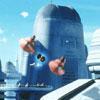
Why John Williams?
GerateWohl and one other reacted to Bespin for a topic
I like the music, I like the man, his path, his rigor, his musical culture, his different abilities (piano, composer, arranger, director), his humour, his temperament, his versatility, his leg to film music. And because he's the last of the Mohicans. He took the Great romantic and symphonic "Hollywood film music" genre HERE, and he brought it THERE, assimilating to a never saw before level, the works of all his predecessors. He's like a J.S. Bach for me.2 points -
Listening to this now. I concur, might be tiny bit better than Bremner. It's a safe purchase @Bespin! Karol2 points
-

John Williams & the Vienna Philharmonic: January 18/19 2020
crlbrg and one other reacted to Gurkensalat for a topic
1 year ago at this time I sat in the first row in the Golden hall watching John Williams conducting the Vienna Philharmonic! It was a once in a lifetime experience I will not forget.2 points -
2 points
-
To download the Warner Brothers streaming AACs, I’d recommend a browser add-on like “DownloadHelper”, or use the standalone “JDownloader2” freeware program. Both will interpret the playlist files and compile the separate segments into a single M4A or audio-only MP4 file. In my experience, “JDownloader2” is the easier method, since you can simply copy all the “.m3u8” links I’ve posted for a given score and paste them into the “Link Grabber” tab. The program should then populate the M4As that result from the playlist files. Choose your download folder for the batch and download away. In some cases, however, an “.m3u8” link isn’t properly read by the program so you may have to then resort to using “DownloadHelper” to grab it.2 points
-
John Williams - at the concert (twice, Vienna) James Newton Howard - at the concert (Warsaw)/ interview (Prague) Hans Zimmer - at the concert (Lodz)/ press meeting/interview (London) Ennio Morricone - at the concert (three times in Krakow), I also had a telephone interview with him Joe Hisaishi - at the concert (Krakow) / the next day a short meeting Alexandre Desplat - at the concert (Krakow)/ the next day a short meeting, and a telephone interview a few weeks earlier Howard Shore - at the concert he wasn't conducting (Krakow) plus a few other meetings over the years, including two interviews and a fan meeting I hosted Jan A.P. Kaczmarek - a few meetings plus an interview (Warsaw) Brian Tyler - at the concert (London, Krakow - as a quest) plus a short meeting and lecture Shigeru Umebayashi - I remember having a drink with him at an afterparty in Krakow Craig Armstrong - A short meeting after a gala devoted to him in Krakow Dirk Brossé - at the concert (London) Diego Navarro - we sat side by side on the bus that was taking the Krakow Film Music Festival guests from the concert to the afterparty and had a nice conversation from my point of view. I also had a telephone interview with him once Tan Dun - I remember a brief meeting with him in Krakow Goran Bregovic - interview (Warsaw) That's all I remember at the moment. If the question was about rock, pop or film stars, the list would be a hundred times longer2 points
-
![Orgasm[+]Donor.](https://www.jwfan.com/forums/uploads/monthly_2017_08/ffffffffffffff.thumb.jpg.201bb378af6ea8e2d39a8f5927d2ae2d.jpg)
The Custom Covers Thread
Mr. Who and one other reacted to Orgasm[+]Donor. for a topic
Some Small covers fro Giacchino's best compostion in my opinion !2 points -
John Williams & the Vienna Philharmonic: January 18/19 2020
Maglorfin and one other reacted to Marian Schedenig for a topic
This also means that tomorrow it'll be a whole year since I last attended a concert. There would have been a few I was looking forward to - I had a ticket for a Mahler 2 at the Konzerthaus, and the Staatsoper had a Walküre with a standout cast scheduled. But at least the last concerts for a year were pretty good ones. What a treat!2 points -
https://thelegacyofjohnwilliams.com/2021/01/18/sheridon-stokes-podcast/2 points
-
2 points
-
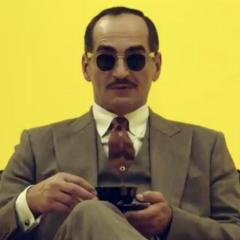
What Is John Williams's Most Goldsmith Style Score (and vice-versa)?
Pieter Boelen reacted to Arpy for a topic
@Bespin That brings up a great discussion around what scores could've been developed further had the composer been given more time/better spotting. Some of Williams' best themes are criminally underused.1 point -
That's not quite true. JG worked very much with leitmotifs in scores like Lionheart, Legend etc.1 point
-
Me neither. Third lockdown has a tendency to do that to people. But I try not to get into very long discussions with Mattris: just pointing out that even he will have to admit he's wrong if nothing comes out about Episode X within the next month or so.1 point
-

What Is John Williams's Most Goldsmith Style Score (and vice-versa)?
bruce marshall reacted to GerateWohl for a topic
The initial question was, where does Williams sound like Goldsmith and not where does Goldsmith sound like Williams. Second question is easier to answer. And when I look at the facto that Goldsmith used no leitmotifs and often used just one theme in the whole film then The Accidential Tourist and Presumed Innocent come to mind.1 point -
I read it last summer ! I agree with you, it's fascinating stuff ; at least until the sobering account of the bombings, which brings a necessary and unsettling balance to this thrilling story of discoveries and groundbreaking experiments by ultra-competent scientists. Mostly though I was in awe of the herculean amount of work that went into that book, the research and the writing. And now I'm a little sad that I've already forgotten most of it I've bought Richard Rhodes's follow-up, Dark Sun, about the making of the H bomb, but I haven't started yet. Maybe you'll find more closure in that one..1 point
-

What Is The Last Score You Listened To? (older scores)
Tom Guernsey reacted to Matt C for a topic
I like the Philharmonia Orchestra's performance here (especially the choir), but this is not a suite per se. It's just a re-recording of the last bit of "Phoenix Rises" and "The Last Stand". Powell could've arranged a nice 15 minute compilation with the film version of "Opening Credits" (film version), "Whirlpool of Love", "Attack on Alcatraz", plus the previous two tracks. Kind of a wasted opportunity.1 point -
Watched Special Bulletin yesterday. It is a television movie from 1983. Its was just as effective now as back then. Sure its a gimmick but a damn fine one. Its the oive broadcast of a nuclear terror event in Charleston SC. as it happens.1 point
-
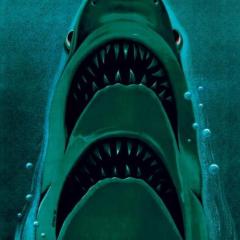
HBO Max Orders Batman: Caped Crusader Animated Series
bruce marshall reacted to crocodile for a topic
When they say that they want to continue the legacy of the original series I hope they mean the original 65 episodes plus Mask of the Phantasm. It's what I think when I talk about the show. Nothing that came after really managed to recapture the magic. Not really. Karol1 point -
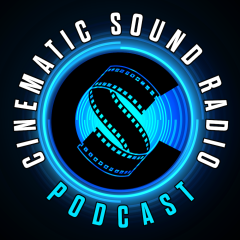
CINEMATIC SOUND RADIO: I could REALLY use your feedback
Bayesian reacted to Erik Woods for a topic
Thank you! Point taken. You are far too kind. Thanks for taking the time to listen and for your feedback. I hope you enjoy all future episodes! Cheers, -ERik-1 point -
I love Camille Claudel.1 point
-
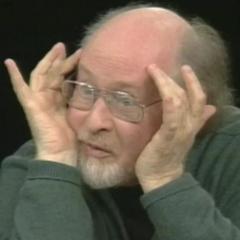
Gabriel Yared's COLD MOUNTAIN (2003) - 2021 Music Box Records 2CD expanded
TheUlyssesian reacted to Thor for a topic
Interestingly, I like quite a bit of his early efforts (BETTY BLUE, L'AMANT, CAMILLE CLAUDEL, MAP OF THE HUMAN HEART), but then came "off" him during his most successful period, and was then re-interested again with BREAKING AND ENTERING in 2006 (collaborating with one of my favourite electronica bands Underworld), as well as DAS LEBEN DER ANDEREN. After that, I've tended to check out everything he does. Sometimes it's interesting, sometimes it's not. Hit and miss, as I said. For example, I'm not too thrilled with his Xavier Dolan collabs, but loved THE PROMISE and JUDY inbetween those. That's basically my Yared history, very briefly.1 point -

Gabriel Yared's COLD MOUNTAIN (2003) - 2021 Music Box Records 2CD expanded
GerateWohl reacted to Thor for a topic
He's hit and miss, but he has some really good ones once in a while. In fact, last year's A LIFE AHEAD (the Sophia Loren Netflix movie) was a highlight; a runner-up in my list. JUDY and THE PROMISE were also good in the last couple of years.1 point -
1 point
-
Williams Broughton Eidelman Elmer Bernstein (shook hands with him lefty to lefty and discussed conducting) Bill Kraft (worked a concert with him where he was conducting a piece— we would chat while waiting for the late arriving musicians) Raksin (taught film scoring for two quarters) Also swapped some e-mails with Mrs. Silvestri. Those are the names that immediately sprang to mind.1 point
-
1 point
-
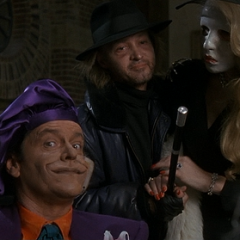
What Is The Last Film You Watched? (Older Films)
Unlucky Bastard reacted to Gruesome Son of a Bitch for a topic
1 point -
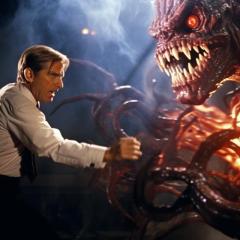
The Quick Question Thread
bollemanneke reacted to karelm for a topic
Should Shakespeare be performed with men playing the female rolls? And with the actors having to compete against the noise of the crowd who shouted, hurled oranges and tried to join in with their performance on the stage as was the style of that Elizabethan era when they were introduced? Should ancient texts be read in their original language since something gets lost in translation? My opinion (yes, I know you specified not asking for opinion but you are getting it regardless) is that there is no definitive answer because the original ideas reveal something distinct that doesn't fully translate. Meanwhile we can interpret their intentions given the limitations of their day and that is what contemporary interpretations seek to do. There are millions of examples so let me give you a few why these represent options and not definitive versions. Berlioz specified the Ophicleide in his monumental Symphony Fantastique which has a heavy debt to Beethoven and picks up where he left off (premiered 1830, just three years after Beethoven died). Today, the ophicleide is never used. It is replaced with a tuba or Euphonium which give the same sinister sound but are more responsive and have better intonation. It keeps the qualities Berlioz sought but not the drawbacks. This is the Sackbut, the predecessor to the trombone. As a trombonist, I love this instrument but even for me, it is hard to tell the difference between these and a contemporary instrument except that the instrument has evolved, is less temperamental, able to stay in tune better, etc. This is analagous to the ancient instruments, they tent to have a slightly rawer edge and slightly less refined intonation that modern instruments improve upon. Wagner's Siegfried Idyll has the horn part transposed in E flat, C, D, etc., basically hardly every in F. That is because he used the natural horn which could not play all scales so the player had to switch instruments or slides where today the modern double horn in F could play the entire work without needing to transpose. These instruments evolved. You will probably never hear the natural horns play this work because the modern horn can play the entire work without changing instruments. This is an example of why performance practice triumphs over original notation. They are doing what the composer means, not what they say. BUT, there is also something unique and interesting to be gained by those willing to explore the work in its very original origin, flaws and all. This is the same thing as reading the Bible in it's original ancient Greek, Aramaic, and Hebrew for example. No one speaks those languages. 99% of the idea comes across in modern translations but some seek to understand that small part that can't really be translated well. That audience is the musical equivalent for period recordings. Think of your question as learning old French to experience Victor Hugo's The Hunchback of Notre-Dame (1831) rather than reading it in English (or your native language). It is true a small percentage of the idea could get lost in translation but almost no one would even notice. This extra effort rewards the concourse, not the masses who wouldn't notice the difference (if there was any).1 point -
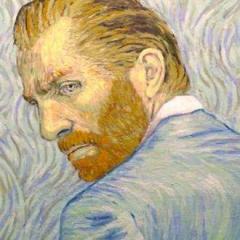
Williams' 2001-2005 film scores
BrotherSound reacted to artguy360 for a topic
Give me those SW scores!1 point -
I have enjoyed the Potters the most and I'm obviously looking most forward to AOTC and ROTS!1 point
-
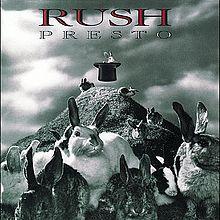
Which composers have you had a chance to meet/see in real life?
Gruesome Son of a Bitch reacted to Naïve Old Fart for a topic
Another hot shot. Another "by god" hot shot.1 point -
Fine score, although I think Zimmer's The Last Samurai should've got the nomination in 2003 instead of Yared.1 point
-

Nigel Westlake's BABE (1995) - 2021 Varese Deluxe Edition
BryonDavis reacted to Jurassic Shark for a topic
Yeah, but I guess Varese would have released the real thing if they had been able to. But I agree it's a great shame when tapes are left to disintegrate by the studios, disregarding their own cultural responsibility.1 point -

The Poll to end all Star Wars Finale/End Credits Polls
Falstaft reacted to Datameister for a topic
Stole the words right out of my...keyboard. Still plenty of room for debate about the merits of the writing-end-credit-suites-that-can-double-as-album-concert-suites approach. But these don't seem to have been last-minute decisions to just shoehorn them into the credits.1 point -
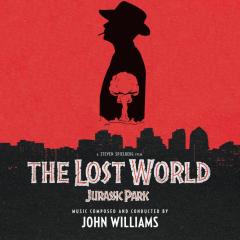
FILM: The Terminator (1984)
SteveMc reacted to Henry Sítrónu for a topic
I think to appreciate T2 to the fullest you really need to embrace the first film too. Not just because of the story, but to see and feel the development of Sarah. And the most terrifying scene in T2 to me is Sarah's assault on Mike Dyson, which mirrors the attacks and murders of the Terminator in the first movie.1 point

